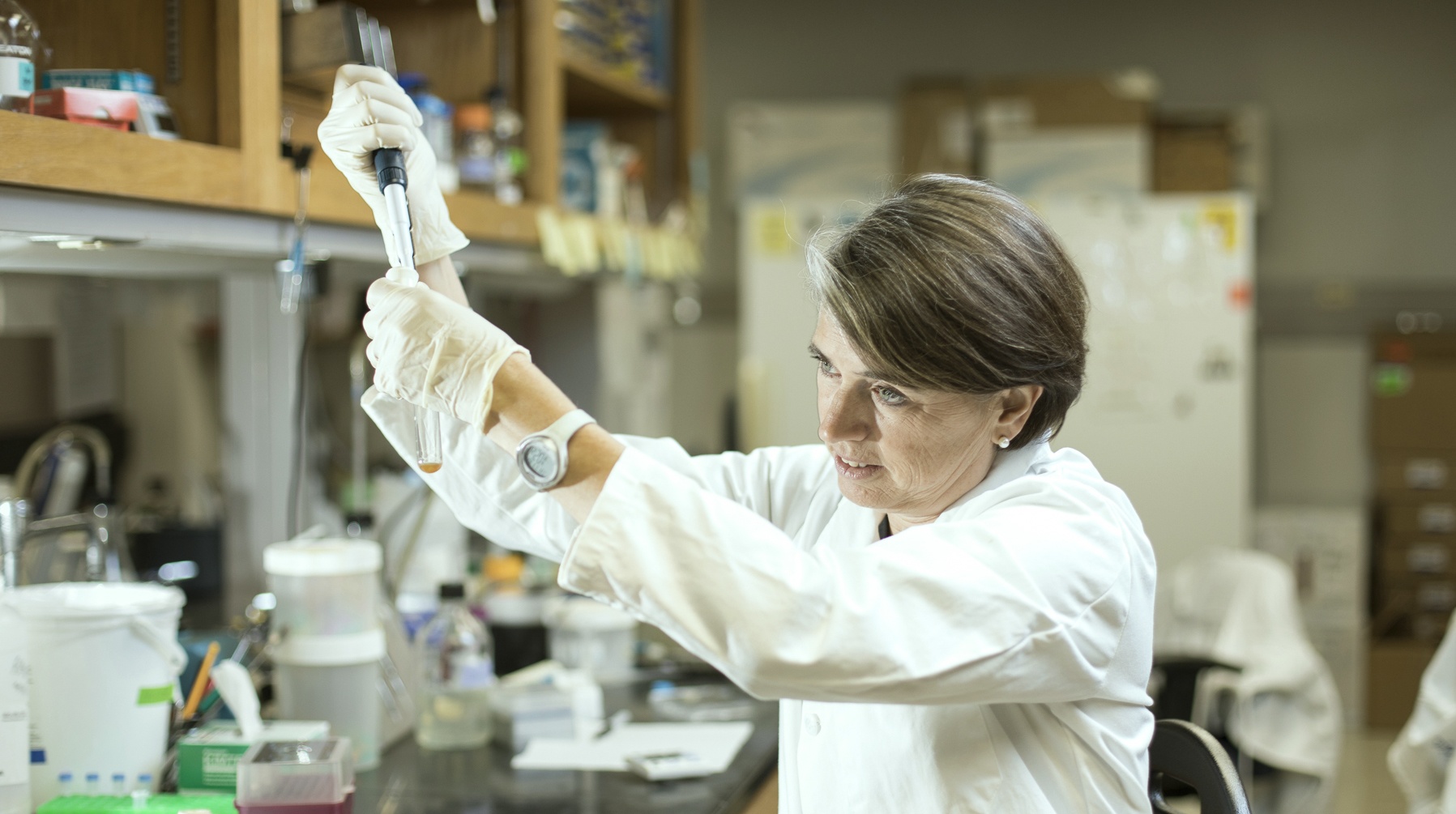The National Institutes of Health has awarded an Oklahoma Medical Research Foundation scientist $2.1 million to explore the meticulous packaging of DNA that allows genes to function as intended.
OMRF scientist Susannah Rankin, Ph.D., will use the five-year grant to better understand chromosomes, which carry genetic data regarding specific human traits like hair color and height.
“Within the nucleus of every cell in our body, we have genomes, each about 3 yards long,” Rankin said. “They’re packed tightly into the microscopic nucleus and organized so that we can grow and develop normally.”
With the new grant, Rankin’s lab will focus on cohesin, a protein with two important jobs in the body. First, it acts as a molecular Velcro, holding two copies of DNA together until the cells divide. Second, it helps to organize our DNA into loops and sections so that the body can turn genes on or off correctly.
Errors in these processes can lead to a host of health issues ranging from genetic disorders and cancer to birth defects and dysfunction associated with aging. By understanding how the process works in normal conditions, researchers can better understand what causes it to go wrong.
“Dr. Rankin’s research is a deep dive into exactly how cohesin functions,” said scientist Gary Gorbsky, Ph.D., who leads OMRF’s Cell Cycle and Cancer Biology Research Program. “Ultimately, the knowledge gained from her work could lead to a range of improvements in human health.”
Rankin’s grant, 1R35GM49343-01, was awarded by the National Institute of General Medical Sciences, a part of the NIH.



